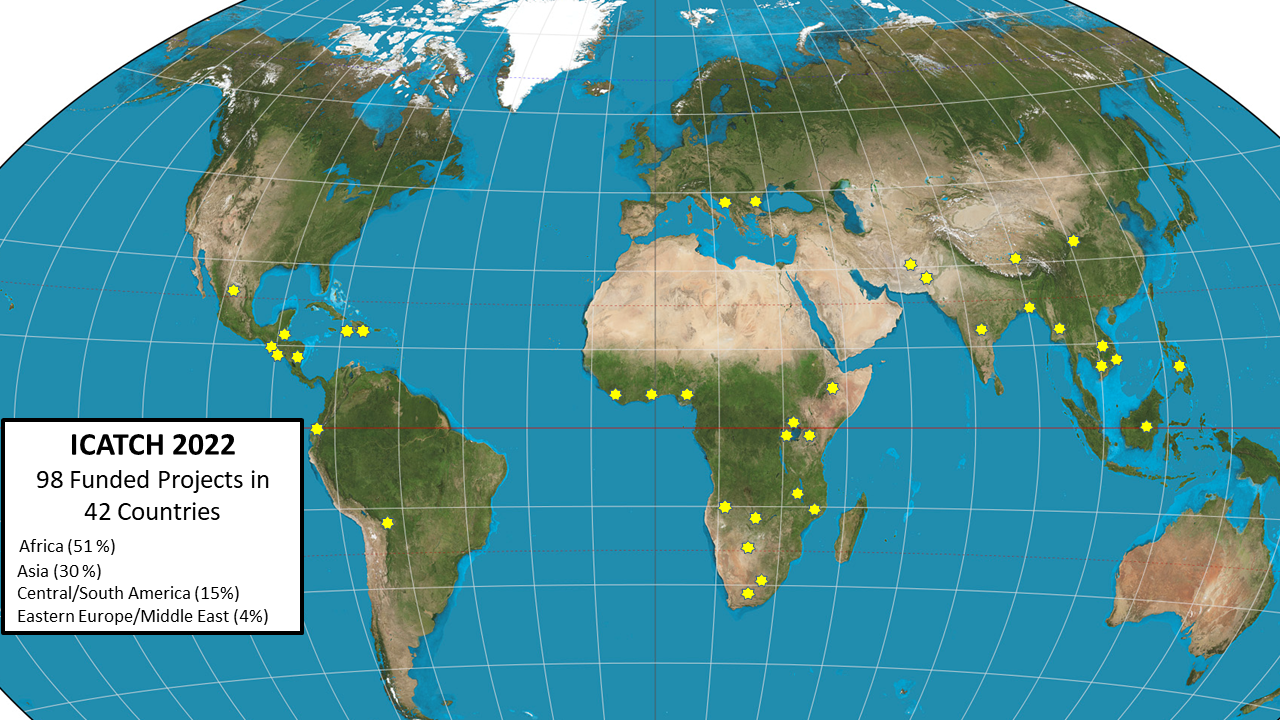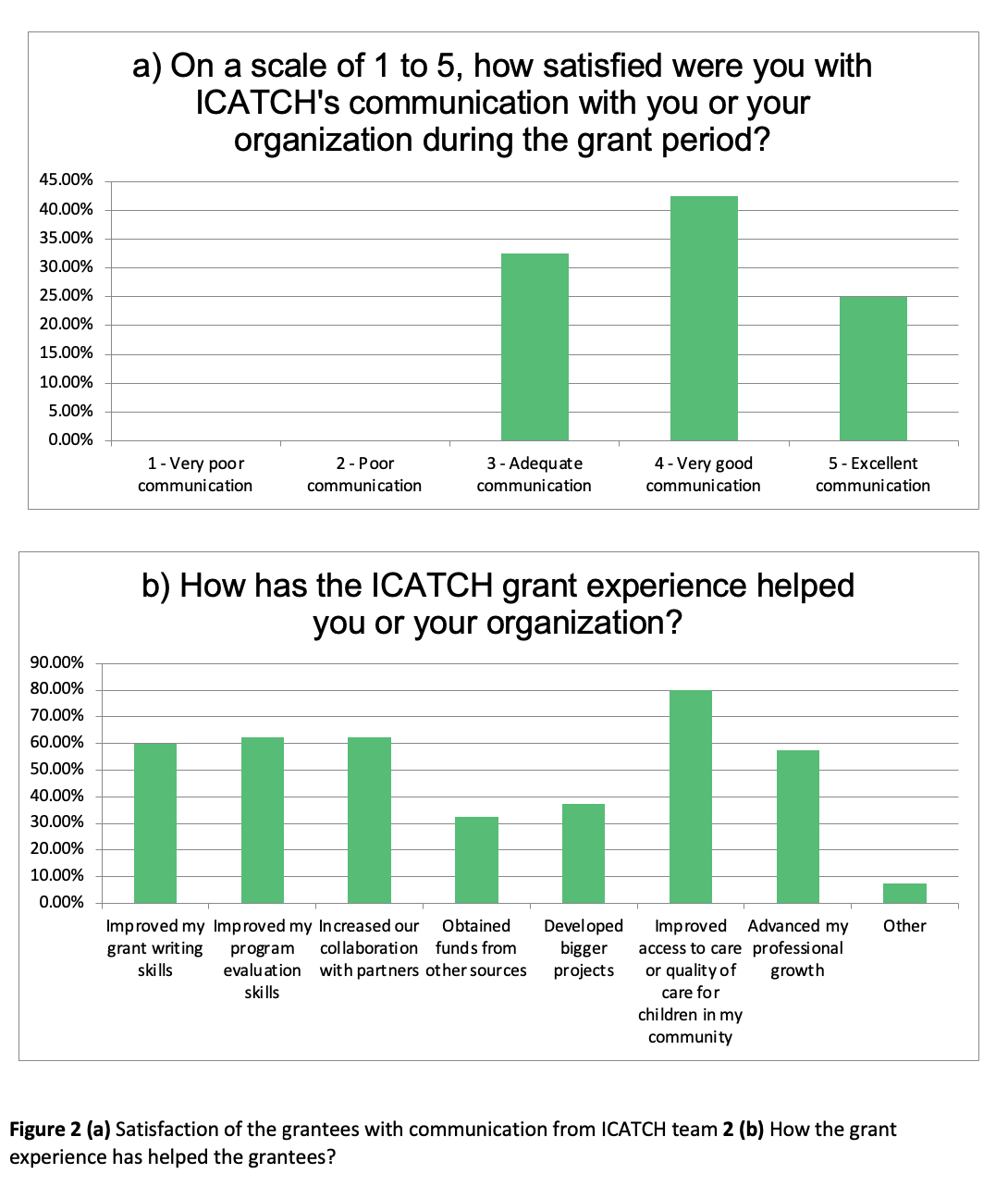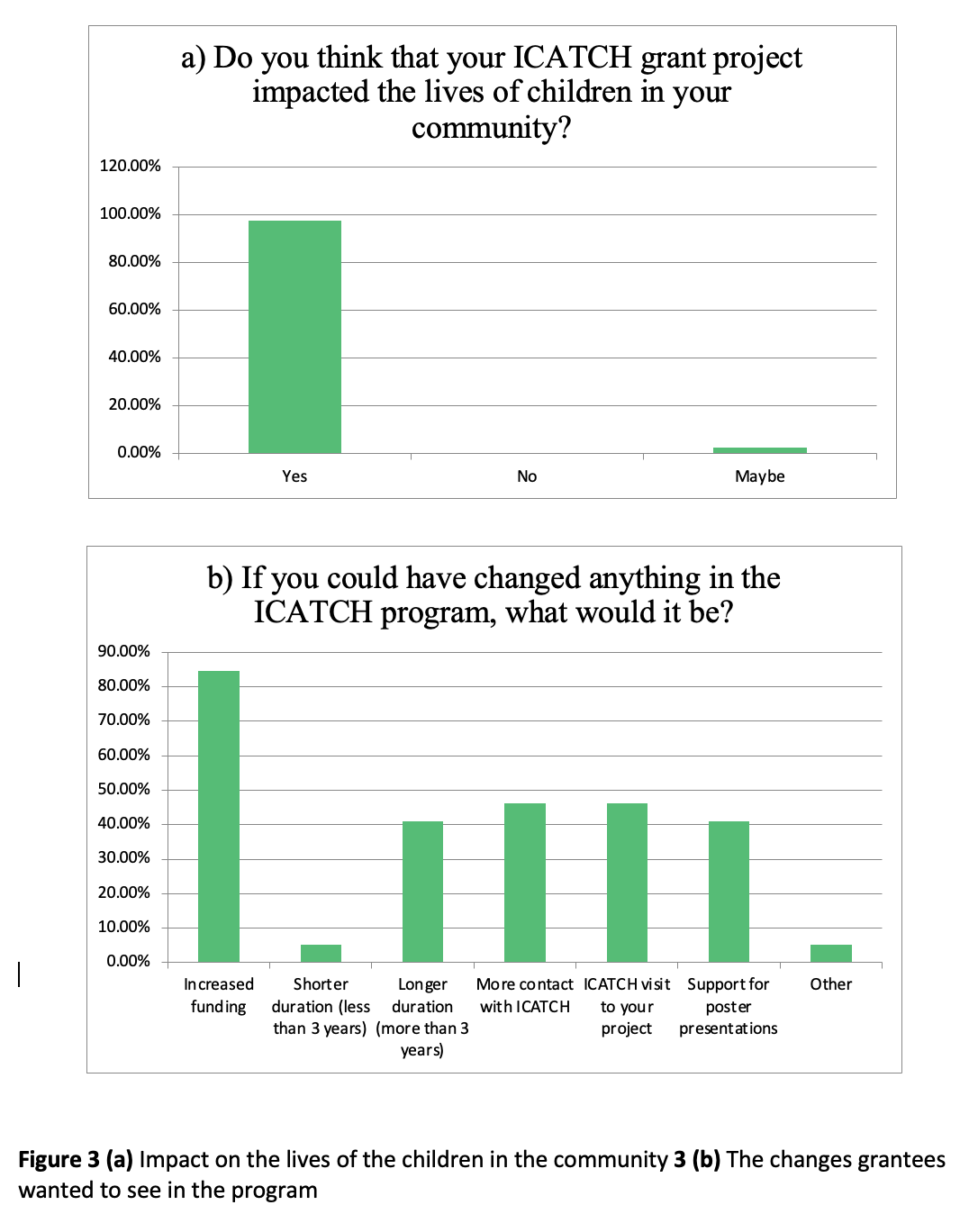Global Neonatal & Children's Health
Global Neonatal & Children's Health 2
645 - The Impact of 15 Years of International Community Access to Child Health Grants - A Global Survey
Publication Number: 645.316
.jpg)
Rachel Umoren, MBBCh, MS
Associate Professor of Pediatrics
University of Washington School of Medicine
Seattle, Washington, United States
Presenting Author(s)
Background:
The International Community Access to Child Health (ICATCH) program was founded at the American Academy of Pediatrics in 2007. The program provides grants to clinicians in low- and low-middle-income countries to implement innovations to improve child health in their communities. For 15 years, ICATCH has provided $2000/year for 3 years to cohorts of 4 to 7 grantees. In July-August 2022, the first-ever ICATCH impact assessment survey was completed using both online survey and virtual interviews.
Objective:
To evaluate the impact of the ICATCH grant award on the community and the grantee; to determine the status of their projects and to obtain feedback on how to improve the ICATCH program.
Design/Methods:
This was a mixed methodology study. The director and co-director of the projects who had completed the grants from 2007 to 2018 (projects completed as of June 30, 2021) were emailed an invitation to complete an electronic survey in SurveyMonkey. The survey was validated prior to usage by six ICATCH team members. It combined fixed-choice items and open-ended response fields, which were assessed via quantitative analysis (in Excel) and qualitative analysis (in NVivo), respectively. Both quantitative and qualitative data analysis of the surveys was conducted followed by thematic analysis of the discussion during interviews.
Results:
Individuals from 77 grants were contacted, of whom 41 individuals from 40 grants participated (52%); 22 had been ICATCH directors and 17 codirectors. Twenty-seven respondents said they’d received resources or advice from ICATCH during their grant periods. Thirty-one (75.6%) said their projects continued after ICATCH funding ended, with 29 (70.7%) also reporting that their ICATCH project idea or activities had been utilized by others. Generally, participants said their ICATCH experience had improved their operational and grant-seeking skills; 97.5% reported that local children had benefited. However, 25 (64.5%) reported that ICATCH had funded only part of their projects, and 33 (84.6%) said ICATCH should increase the awarded amount. Qualitative analysis of open ended survey and interview data is ongoing.
Conclusion(s):
The ICATCH impact survey indicated that the experience of the grantees have been positive about the program, and it had a significant impact on the health of the children in their community. The results also suggested the need for increased funding to grantees and possibly more frequent evaluation of the impact of the program.


